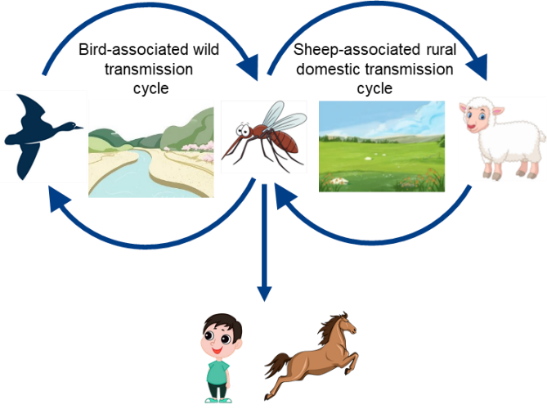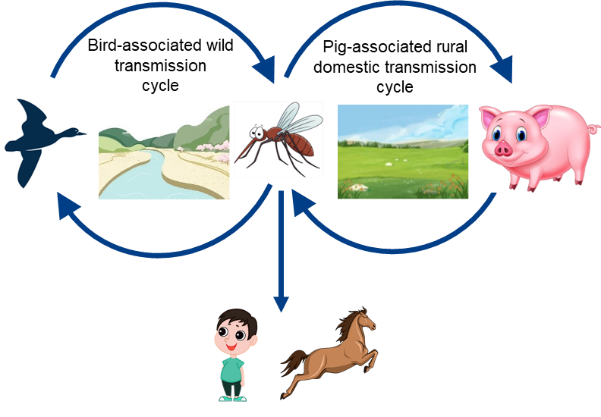
Recently, the Innovation team of Early Warning and Prevention of Swine Infectious Disease of SHVRI CAAS revealed that sheep may serve as potential amplifying hosts in the transmission cycle of Japanese encephalitis virus (JEV). The findings have been published in Science Advances.
Background
Japanese encephalitis virus is a mosquito-borne zoonotic virus. JEV primarily circulates in nature through a "mosquito-pig-mosquito" cycle, where pigs and birds serve as amplifying hosts, while humans and horses are dead-end hosts.
Research Progress
This study found that JEV was widespread prevalence in sheep populations. The levels and duration in JEV-infected sheep of viremia were similar to those observed in JEV infected pigs. And JEV-infected sheep develop sufficient viremia to infect mosquitoes. These results confirmed sheep as novel potential amplifying hosts for JEV. On the basis of these findings, we proposed an alternative, sheep-associated rural domestic cycle for JEV transmission. This cycle may be prevalent in specific ecological niches where sheep are bred but pigs are not. This sheep-associated cycle could coexist with the pig-associated and bird-associated cycles in regions where sheep, pigs, and birds cohabitate.This discovery offers a novel perspective for the surveillance and early-warning of Japanese encephalitis virus, which will ultimately contribute to the refinement of global public health control measures.


Funding
This study was supported by the National Key Research and Development Program of China and the Agricultural Science and Technology Innovation Program of CAAS. Hailong ZHANG, a joint doctoral student of SHVRI CAAS and Hebei Agricultural University, is the first author of the paper. Jianchao WEI, Zhiyong MA,and Juxiang LIU, are the co-corresponding authors.
Link to Original Article
https://www.science.org/doi/10.1126/sciadv.ads7441

